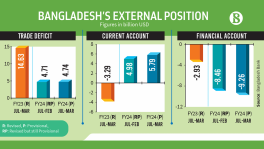US-China tensions take center stage at UN as Trump accuses Beijing of unleashing 'plague'
Trump, facing a November re-election battle with the United States dealing with the world's highest official number of deaths and infections from the coronavirus, focused his speech on attacking China

US President Donald Trump told the United Nations General Assembly on Tuesday that China must be held accountable for having "unleashed" Covid-19 on the world, prompting Beijing to accuse him of "lies" and abusing the UN platform to provoke confrontation.
China's President Xi Jinping struck a conciliatory tone in his pre-recorded virtual address to the General Assembly, calling for enhanced cooperation over the pandemic and stressing that China had no intention of fighting "either a Cold War or a hot war with any country."
But China's UN ambassador Zhang Jun rejected Trump's accusations against China as "baseless" and said "lies repeated a thousand times are still lies."
Trump and Xi, leaders of the world's two largest economies, laid out competing visions at a time when relations have plunged to their worst level in decades, with coronavirus tensions aggravating trade and technology disputes.
Trump, facing a November re-election battle with the United States dealing with the world's highest official number of deaths and infections from the coronavirus, focused his speech on attacking China.
He accused Beijing of allowing people to leave China in the early stages of the outbreak to infect the world while shutting down domestic travel.
"We must hold accountable the nation which unleashed this plague onto the world, China," he said in remarks taped on Monday and delivered remotely to the General Assembly due to the pandemic.
"The Chinese government, and the World Health Organization – which is virtually controlled by China – falsely declared that there was no evidence of human-to-human transmission," he said.
"Later, they falsely said people without symptoms would not spread the disease ... The United Nations must hold China accountable for their actions."
The president promised to distribute a vaccine and said: "We will defeat the virus, and we will end the pandemic."
'GET THROUGH THIS TOGETHER'
Xi's address contained what appeared to be an implicit rebuke to Trump, calling for a global response to the coronavirus and a leading role for the WHO, which the US president has announced plans to leave.
"We should enhance solidarity and get through this together," he said.
"We should follow the guidance of science, give full play to the leading role of the World Health Organization and launch a joint international response ... Any attempt of politicizing the issue, or stigmatization, must be rejected."
The WHO rejected Trump's remarks.
"No one gov't controls us," its communications director, Gabby Stern tweeted, adding: "On Jan. 14 our #COVID19 technical lead told media of the potential for human-to-human transmission. Since February, our experts have publicly discussed transmission by people without symptoms or prior to symptoms."
Russian President Vladimir Putin told the General Assembly the WHO should be strengthened to coordinate the global response to the pandemic and proposed a high-level conference on vaccine cooperation.
China has portrayed itself as the chief cheerleader for multilateralism at a time when Trump's disregard for international cooperation has led him to quit global deals on climate and Iran, as well as the UN Human Rights Council and the WHO.
Xi took an apparent swipe at Trump's "America First" policy in a statement on Monday to a meeting celebrating the UN's 75th anniversary.
"No country has the right to dominate global affairs, control the destiny of others, or keep advantages in development all to itself. Even less should one be allowed to do whatever it likes and be the hegemon, bully or boss of the world. Unilateralism is a dead end," he said.
The US coronavirus death toll surpassed 200,000 on Monday, by far the highest official number of any country.
Trump also attacked China's record on the environment, but leveled no direct criticism at Beijing over human rights.
Trump, a frequent critic of the UN, said that if it was to be effective, it must focus on "the real problems of the world" like "terrorism, the oppression of women, forced labor, drug trafficking, human and sex trafficking, religious persecution, and the ethnic cleansing of religious minorities."
In his UN address, French President Emmanuel Macron called for an international mission under UN auspices to visit China's Xinjiang region to look into concerns about alleged abuses of Muslims there.
China's envoy Zhang Jun issued a statement in response to Trump's remarks, accusing the United States of "abusing the platform of the United Nations to provoke confrontation and create division."
In his speech, Xi announced plans to boost China's Paris climate accord target and called for a green revolution, just minutes after Trump blasted China for "rampant pollution."
UN Secretary-General Antonio Guterres warned that the world was "moving in a very dangerous direction" with US-China tensions.
"We must do everything to avoid a new Cold War," he said. "Our world cannot afford a future where the two largest economies split the globe in a Great Fracture — each with its own trade and financial rules and Internet and artificial intelligence capacities.
"A technological and economic divide risks inevitably turning into a geo-strategic and military divide. We must avoid this at all costs."


 Keep updated, follow The Business Standard's Google news channel
Keep updated, follow The Business Standard's Google news channel
















